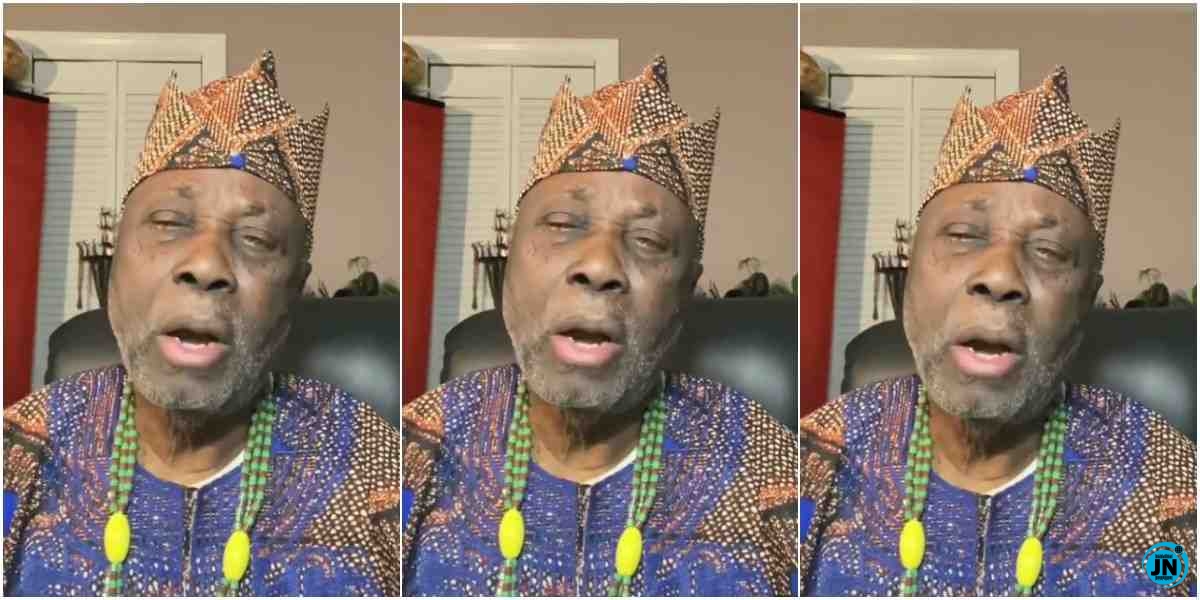
Former Vice-Chancellor of Obafemi Awolowo University (OAU), Ile-Ife, Prof. Wande Abimbola, has expressed deep concern over the declining standards and inadequate funding of Nigerian universities, warning that unless immediate and drastic measures are taken, the nation’s higher education institutions are at risk of total collapse. He lamented the meagre salaries paid to Nigerian university professors and the demoralizing effects this has on academics, calling the situation “a national embarrassment.”
Speaking during an appearance on Boiling Point Arena, Prof. Abimbola described the salaries of Nigerian professors as grossly insufficient to sustain a decent standard of living, noting that the profession, once highly respected, has now been reduced to a state of near-poverty. He emphasized that the lack of adequate compensation discourages young talents from pursuing or remaining in academia, further weakening the nation’s universities.
Professors’ Salaries Compared to U.S. Gardeners
Prof. Abimbola revealed that a full professor in Nigeria currently earns about ₦500,000 monthly, which is approximately $300 when converted. He drew a striking comparison, saying that this amount is almost equivalent to what an average gardener in the United States would earn in just three hours. Highlighting the disparity, he said, “Recently, about two years ago, I went back to the University where I was the VC. I visited my Department, and I was told that a full professor earns about ₦500,000 monthly. When we converted the amount, this is almost equivalent to the $300 academics elsewhere in the United States will use to take care of his garden within just three hours.”
He further explained that such poor remuneration leaves professors demoralized and unable to focus on research or quality teaching. Many are forced to take on additional jobs or side hustles just to meet basic needs, which he warned undermines the academic mission and the quality of education.
Decline of Nigerian Universities
Reflecting on the past, Prof. Abimbola recounted that Nigerian universities were once respected globally for their high standards. During his tenure as OAU VC in 1989, he stated that the institutions were thriving and ranked among the top universities internationally. However, he lamented that within a decade of his departure, the quality began to deteriorate significantly, leaving him distressed upon his return visits.
“Our institutions were still at their peak of quality. However, within five years or less than ten years after my exit, I visited the University and almost cried because of what I saw, the level of decadence. It has been getting worse since then,” he said, expressing disappointment over the progressive decline in standards, infrastructure, and academic culture.
Prof. Abimbola also criticized both Federal and State Governments for establishing new universities while failing to adequately fund the existing ones. He argued that this approach stretches resources thin and creates institutions that lack the necessary facilities, staff, and operational funding, thus compromising the quality of education. He warned that continuing this pattern without immediate intervention could result in the eventual collapse of Nigeria’s university system.
Call for Urgent Intervention
The former VC urged the Federal Government to act immediately by establishing a Commission of Inquiry tasked with evaluating the current state of universities and recommending actionable measures to rescue them. He stressed that securing proper funding, ensuring fair remuneration for professors, and enforcing accountability are critical steps to prevent further deterioration.
“The most important thing about university is funding. We need to ask our governments, both at the federal and state levels, why they have been aloof and looking on until things got this bad. I think the best thing we can do now is to urgently set up a Commission of Inquiry on what we can really do to salvage the system and make things better,” Prof. Abimbola said, emphasizing that only through decisive action can Nigeria’s universities regain their former glory.
He also expressed alarm over the declining global rankings of Nigerian universities, noting that institutions once rated among the top 500 in the world and top 11 in Africa have now fallen behind. He described this trend as deeply troubling and a national shame, urging all stakeholders to prioritize higher education.
“Nigerian universities are slowly dying before our very eyes. It is a big shame,” he concluded, calling on both government and society to recognize the urgency of the crisis and take immediate action to save the nation’s academic future.